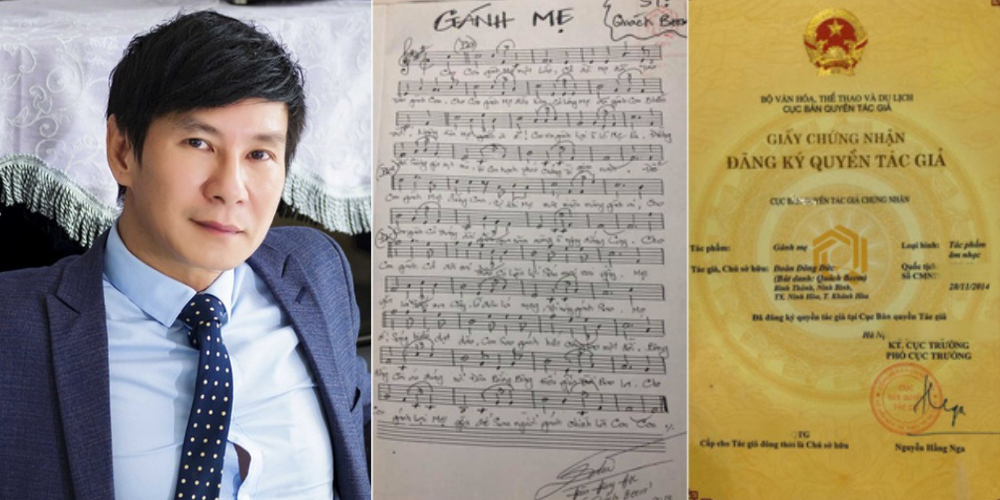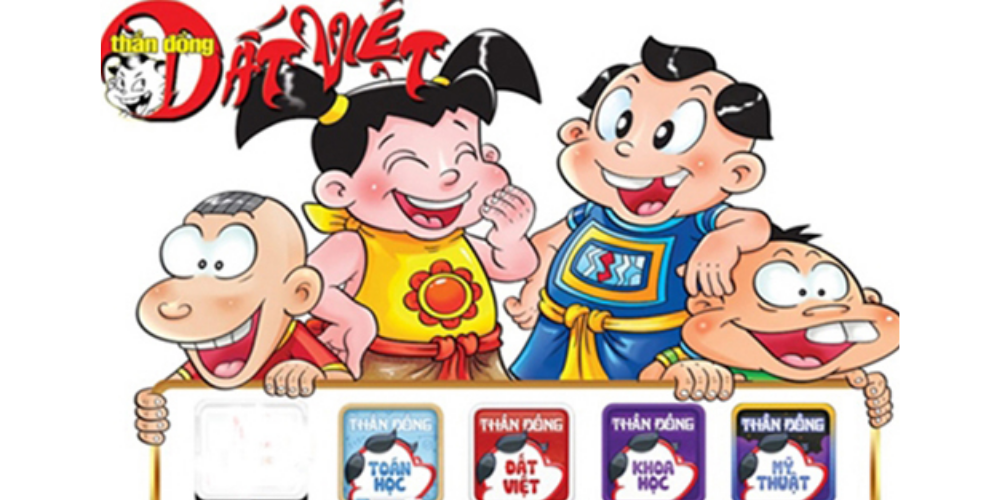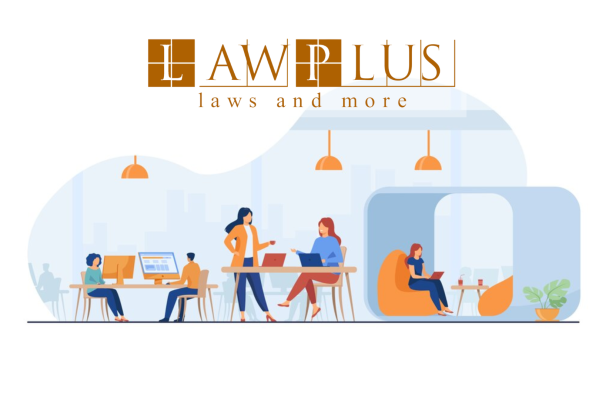Copyright arises from the time a work is created and is expressed in a certain material form, regardless.of its content, quality, form, medium, language, published or not published registered or not registered. Creating a work of value and creativity, requires the brainwork, intellectual, time and financial work of its creator. However, in order to ensure that creators can resist unauthorized use.of the work: such as copying or using the work illegally, the registration of copyright is indispensable. THE REGULATIONS ON COPYRIGHT IN 2021
Let Law Plus to refer to the legal information as well as the procedures to understand.clearly copyright as well as the important of registration of protection right in the content of the analysis below.
Table of Contents/Mục lục
1. What is copyright?
Surely everyone is familiar with the symbol C in the circle ©. It is a symbol that informs the public that written works, novels, songs, … are protected by copyright. So what is copyright? Copyrights is the rights of the organizations and individuals to works created or owned by them.
Copyright of works include moral rights and property rights. THE REGULATIONS ON COPYRIGHT IN 2021
a. The moral rights include rights
- Give titles to their works;
- Attach their real names or pseudonyms to their works; to have their real names.or pseudonyms acknowledged when their works are published or used;THE REGULATIONS ON COPYRIGHT IN 2021
- PubLish their works or to authorize other persons to publish their works;
- Protect the integrity of their works; and to forbid other persons to modify, edit.or distort their works.in whatever form, causing harm to the honour and reputation of the author.
b. The property rights includes rights:
- To make derivative works;
- To reproduce their works;THE REGULATIONS ON COPYRIGHT IN 2021
- To distribute or import the original or copies of their works;
- To communicate their works to the public by wireless or landline means, electronic information.networks or other technical means;
- To lease the original or copies of cinematographic works and computer programs.
Property rights are exercised exclusively by authors or holders or permitted by others to implement under the provisions of law.
Organizations and individuals, when needing, using one, some or all of the property rights of the.author and the right to publish the author’s work, must apply for permission and pay royalties, remuneration and.other material benefits for copyright owners.

2. The copyright holder
The author, copyright holder is the person who directly creates the work and the copyright.holder specified in the provisions under the Consolidated document of Intellectual Property Law 2019, including:
- Vietnamese organizations and individuals;THE REGULATIONS ON COPYRIGHT IN 2021
- Foreign organizations and individuals’ works which first published in Vietnam.but not published in any country or published in Vietnam simultaneously, within 30 days from the date of publication, since the date of the product was first published in other country;
- Foreign organizations and individuals whose works are protected in Vietnam under international.copyright treaties to which the Socialist Republic of Vietnam is a member.
3. Subjects of copyright protection
Copyright was recorded for works, including:THE REGULATIONS ON COPYRIGHT IN 2021
(i) Literary and scientific works, textbooks, teaching materials, and other works expressed written letters.or other characters (the braille for the visually impaired, shorthand symbols and.similar symbols for writing, which can be copied in.many forms by the audience); (ii) Lectures, addressed, and other speeches; (iii) Press works; (iv) Musical works; (v) Dramatic works; (vi) Cinematographic works and works created by a process analogous to cinematography; (vii) Plastic-art works and works of.applied art; (viii) Photographic works; (ix) Architectural works; (x) Sketches, plans, maps and drawings related to photography.or scientific works; (xi) Folklore and folk art works of folk culture; (xii) Computer programs and a compilations of data.
Otherwise, the type of work are not belong to the cases are protected by copyright.protection, including: (i) News of the day as mere items of press information; (ii) Legal documents, administrative documents and.other documents.in the judicial domain and official translations of these documents; (iii) Processes, systems, operation methods, concepts, principles and data.
4. Copyright registration certificate
According to the provisions of the Intellectual Property Law, the author or holder shall submit.an application and related documents (hereinafter referred to as applications) to the competent state to collect the information about the authors, works, and the holders.
Filing an application to be granted a copyright registration certificate or related rights registration.certificate is not a mandatory procedure for enjoying copyrights and related rights under the provisions of this Law.
Organizations and individuals that have been issued with a copyright registration certificate, or related registration certificate are not obliged to prove their copyrights and related rights in case of a dispute, unless.there is reverse evidence.
5. Procedures for registration of copyrights
In order to obtain a copyright registration certificate from a competent state agency, organizations and.individuals need to prepare a complete dossier according to the provisions of Article 50 of the current Intellectual Property Law:
5.1. The documents required for copyright
- A written declaration for registration of copyrights;
- The copy of the work to application for copyright registration;THE REGULATIONS ON COPYRIGHT IN 2021
- A letter of authorization where the applicant is the authorized person;
- Documents proving the right to file application, if the applicant is also the beneficiary.of rights from other person due to receive an inheritance, assignment;
- Written consent of co-authors, for works under joint authorship;
- Written consent of co-owners.THE REGULATIONS ON COPYRIGHT IN 2021
5.2. Competent state agencies and time limit for granting
After receiving a copyright registration application, the Copyright Office will process the application.according to the time limit specified in Article 52 of the current Intellectual Property Law.
5.3. Time for handling the dossiers
Within fifteen working days, after the receipt of a valid dossier, the state management.agency in charge of copyright shall have to grant a registered copyright certificate to the applicant. In case of refusal to grant registered copyright certificates, the state management agency in charge of copyright must notify such in writing to the applicants
5.4. Fee for granting the Certificate
The fee for the grant of the Certificate is specified in Circular No. 211/2016 / TT-BTC dated November 10, 2016 regulates.on the rates, collection, payment, management and use of the author, related rights registration fee.
6. Term of protection of copyright
Copyright includes two terms of protection: indefinite protection and term of protection.
- Indefinite protection of moral right includes the following rights: To title their works; To attach their real names.or pseudonyms to their works; to have their real names or pseudonyms acknowledged when their works.are published or used; To protect the integrity of their works.
- Term of protection includes the rights to: Moral rights: To publish their works or authorize other persons to publish their works;
Regarding to the right to publication or allow the others to publish the work and property rights:
- Cinematographic works, photographic works, dramatic works, works of applied art and anonymous.works shall have the term of protection of 75 years as from the date of first publication;
- If a cinematographic work, photographic work or applied art work has.not been published within 25 years from the date of its formulation, the term of protection will be 100 years, calculated from the date of its formulation.
- Reagrding to any other works and anonymous works, when the author’s.information appear, will be protected during its author’s life plus 50 years after their death. In case the works have been created by joint authors, the term of protection will expire in the 50 years after the death of the last surviving co-author.
The term of protection shall expire at 24:00 pm of December 31 of the year of expiration.of copyright protection term.

7. Case of re-grant, renewal and revoke the registered copyright certificates
7.1. Case of re-grant and renewal the registered copyright certificates
Where a registered copyright certificate is lost or damaged, or where.the copyright holder is changed, the competent agency is Copyright Office shall re-grant or renew such registered copyright certificate.
The authors or copyrights holders want to apply for re-grant or renewal of the Certificate shall submit an application clearly explaining the reason and submit a dossier as provided for in Article 50 of the Intellectual Property Law.
7.2. Case of revoke the registered copyright certificates
Where a registered copyright certificate grantee is not the author, copyright holder or where the registered work, phonogram, video recording or broadcast is ineligible for protection, the Copyright Office shall revoke such registered copyright certificate or registered related rights certificate.
Organizations and individuals that detect that the grant of registered copyright certificates is contrary to the provisions of this Law are entitled to request the Copyright Office in charge of copyright to revoke such registered copyright certificates.
8. Cases of use of published works where permission is optional
The Intellectual Property Law provides specific exceptions to copyright, allowing the use of a published work without permission and/or paying royalties or remuneration if such use is not for the purpose of commercial purposes, but for the purpose of developing common social and cultural purposes, contributing to improving people’s access to knowledge. At the same time, these deed do not harm the author, the work or the copyright to the work. For that reason, some articles of the Law on Intellectual Property- Consolidated document 2019 stipulates the following cases:
8.1 Cases of use of published works where permission and payment of royalties and/or remunerations are optional
Under the regulations on Article 25 of the Law on Intellectual Property the cases of use of published works where permission or payment of royalties and/or remunerations is optional include:
– Duplication of works by authors for scientific research or teaching purpose;
– Reasonable recitation of works without misrepresenting the authors’ views for commentary or illustrative purpose;
– Recitation of works without misrepresenting the authors’ views in articles published in newspapers or periodicals, in radio or television broadcasts, or documentaries;
– Recitation of works in schools for lecturing purpose without misrepresenting the authors’ views and not for commercial purpose;
– Reprographic reproduction of works by libraries for archival and research purpose;
– Performance of dramatic works or other performing-art works in mass cultural, communication or mobilization activities without collecting any charges in any form;
– Audiovisual recording of performances for purpose of reporting current events or for teaching purpose;
– Photographing or televising of plastic art, architectural, photographic, applied-art works displayed at public places for purpose of presenting images of such works;
– Transcription of works into Braille or characters of other languages for the blind;
– Importation of copies of others’ works for personal use .
8.2 Cases of use of published works where permission is optional or but the payment of royalties and/or remunerations is obligatory
According to Article 26 of the Intellectual Property Law, broadcasting organizations which use published works in making their broadcasts, which are sponsored, advertised or charged in whatever form, shall not have to obtain permission but have to pay royalties or remunerations to copyright holders. This must neither affect the normal utilization of such works nor cause any prejudice to the rights of the authors and/or copyright holders; and must indicate the authors’ names, and sources and origins of the works. And the use of works in the cases shall not apply to cinematographic works.
9. Acts of infringing upon copyright
The authors or holders of copyrighted works have the right to denounce and demand coercion for the following violations committed with that work without their consent:
- Appropriating copyright to literary, artistic or scientific works.
- Impersonating authors.
- Publishing or distributing works without permission of authors.
- Publishing or distributing works under joint-authorship without permission of co-authors.
- Modifying, mutilating or distorting works in such a way as prejudicial to the honor and reputation of authors.
- Reproducing works without permission of authors or copyright holders, except for the cases specified at Points a and e, Clause 1, Article 25 of the Law on Intellectual Property- Consolidated document 2019.
- Making derivative works without permission of authors or holders of copyright to works used for the making of derivative works, except for the cases specified at Point i, Clause 1, Article 25 of the Law on Intellectual Property- Consolidated document 2019.
- Using works without permission of copyright holders, without paying royalties, remunerations or other material benefits according to the provisions of law, except for the cases specified in Clause 1, Article 25 of the Law on Intellectual Property- Consolidated document 2019.
-
Leasing works without paying royalties, remunerations or other material benefits to authors or copyright holders.
- Duplicating, reproducing, distributing, displaying or communicating works to the public via communication networks and by digital means without permission of copyright holders.
- Publishing works without permission of copyright holders.
- Willingly canceling or deactivating technical solutions applied by copyright holders to protect copyright to their works.
- Willingly deleting or modifying right management information in electronic form in works.
- Manufacturing, assembling, transforming, distributing, importing, exporting, selling or leasing equipment when knowing or having grounds to know that such equipment may deactivate technical solutions applied by copyright holders to protect copyright to their works.
- Making and selling works with forged signatures of authors of original works.
- Exporting, importing or distributing copies of works without permission of copyright holders
In addition, authors, copyright holders need to request inspection of copyright infringement issues through the Expertise Center of Copyright (Related Rights – ECCR) located at Copyright Office under the Ministry of Culture, Sports and Tourism.
Then, based on the above cases when authors and owners of copyrighted products detect infringements, they have the right to apply the following measures to protect their copyrights themselves, specifically:
- Applying technological measures to prevent acts of infringing upon intellectual property rights;
- Requesting organizations or individuals that commit acts of infringing upon intellectual property rights to terminate their infringing acts, make public apologies or rectifications and pay damages;
- Requesting competent state agencies to handle acts of infringing upon intellectual property rights according to the provisions of Law on Intellectual Property- Consolidated document 2019 and other relevant provisions of law;
- Initiating at courts or arbitration centers to protect their legitimate rights and interests.
It can be seen that, copyright protection does not depend on registration and does not depend on the content of the quality of the product, in principle, it may not be necessary to apply for copyright protection. However, as we analyzed above, people will respect the benefit of registering the copyright helps holders, the creators will receive a corresponding benefit when someone use their work, is the most relevant evidence in potentially contested circumstances. In addition, the changes of the law when recognizing and protecting for the author, the copyright holder of exclusive rights will be the economic driving force that makes the author to create more works, more qualitative, which contributes to promoting the author’s creativity and outreach to the public’s work.
The above is entire analysis of advisory content on legal issues related to copyright. If you need detailed advice, please contact LawPlus at hotline: +84 2862 779 399 or email info@lawplus.vn.
LawPlus











